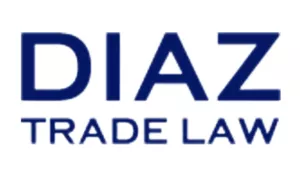The Court of International Trade (CIT) ruled in a recent opinion that it is unreasonable for the Commerce Department not to attempt verification of an exporter's certificates proclaiming nonuse of China's Export Buyer's Credit Program (EBCP) when the exporter did not submit certificates for all its customers.
The ruling stems from an administrative review of a 2012 countervailing duty order on solar cells from China. In February 2022, Commerce initiated its Ninth Administrative Review of the order. In March 2022, the International Trade Administration (ITA) selected Risen Energy Co, a developer, manufacturer, and distributor of solar photovoltaic application products, as a mandatory respondent.
Risen reported that none of its customers used the EBCP during the period of review, and submitted non-use certificates for all but one of its U.S. customers. However, in the final results, Commerce included the Government of China's EBCP in its calculation of Risen's countervailing duty rate. Commerce stated that the Government of China did not provide all of the information initially requested, namely the one missing non-certificate. Therefore, Commerce concluded that Risen had failed to provide sufficient record evidence to determine non-use. Risen appealed the decision to the CIT arguing that the decision was not based on substantial evidence.
Judge Jane Restani heard the case and remanded the review of the countervailing duty order so that Commerce can attempt to verify Risen's non-use certificates. Judge Restani stated that the conclusion that Risen failed to provide sufficient evidence based on their inability to account for a sliver of non-use certificates was unreasonable.
She also addressed the CVD rate commenting on Risen's account for 98% of non-use certificates stating, "Even if EBCP funded 100 percent of the non-cooperating party's sales, 100 percent of two percent of sales does not support an application of a CVD rate that includes EBCP to all of Risen's product sales...the math does not add up."
The court ordered Commerce to attempt verification to more accurately calculate what proportion of sales Risen is able to account for or must remove the EBCP rate attributable to the customers demonstrating non-use from the overall CVD rate.
The content of this article is intended to provide a general guide to the subject matter. Specialist advice should be sought about your specific circumstances.


